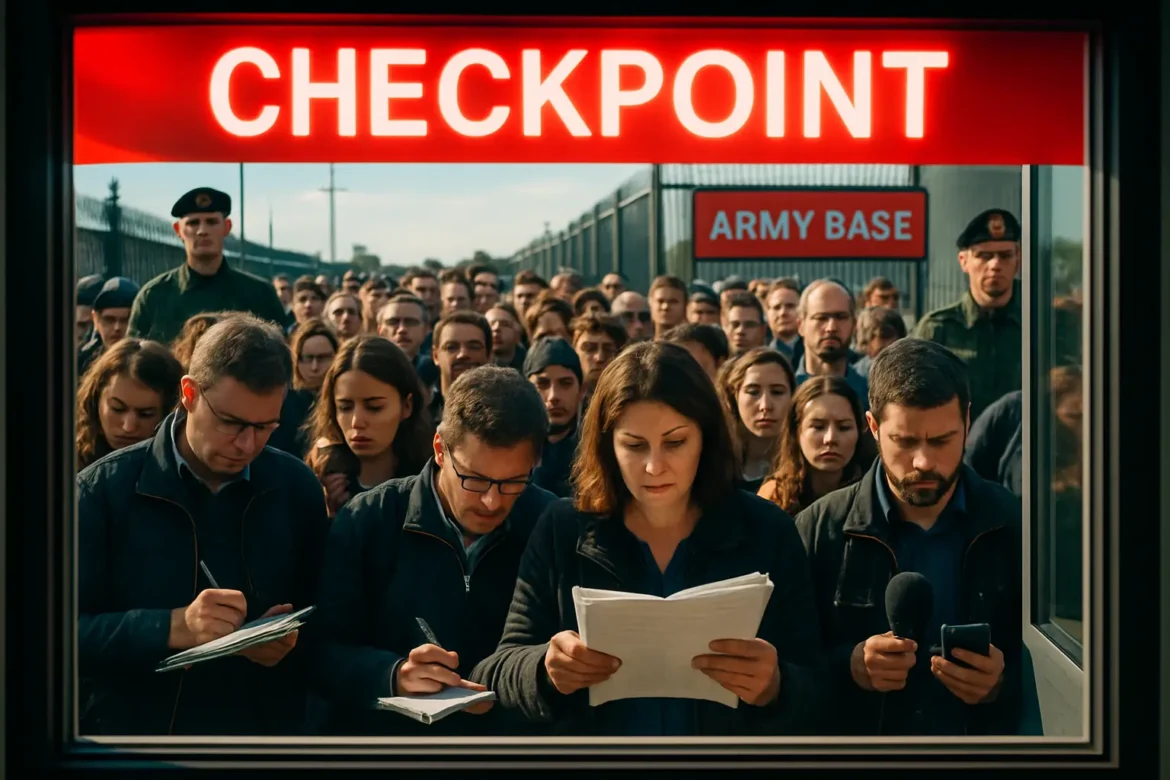President Trump Reinstates Original Confederate Army Base Names
In a move celebrated by patriotic conservatives and tradition-minded veterans, President Donald Trump announced on June 10, 2025, plans to restore the original names of seven U.S. Army bases previously renamed under recent administrations. The announcement came during a speech at Fort Bragg, North Carolina, coinciding with the U.S. Army’s 250th anniversary celebrations, where Trump stated, “We won a lot of battles out of those forts. It’s no time to change. And I’m superstitious. I like to keep it going.” This decision marks a firm reversal of the renamings that had followed the national push to erase Confederate heritage from military installations after the George Floyd riots, reflecting renewed respect for America’s military tradition and history.This restoration respects the Army’s battlefield legacy while countering revisionist efforts to erase Southern heritage from military service.
“We won a lot of battles out of those forts. It’s no time to change. And I’m superstitious. I like to keep it going.” – President Donald Trump at Fort Bragg, June 10, 2025
The seven bases to be renamed include Fort Hood in Texas, Fort Gordon in Georgia, Fort Rucker in Alabama, Fort Pickett and Fort Barfoot in Virginia, Fort Polk in Louisiana, and Fort A.P. Hill in Virginia. All were originally named after Confederate generals or officers, but were changed following a 2021 law that mandated removal of Confederate names from Department of Defense assets. By reverting these changes, the Trump administration affirms the importance of honoring historical military figures rooted in the Southern legacy of the Civil War.
The Reversal of Biden-Era Military Base Renamings
The initiative to rename seven military bases honoring Confederate commanders was driven by the 2021 National Defense Authorization Act and enacted through a Naming Commission appointed during the Biden administration. The Commission recommended new honorees like Medal of Honor recipients and pioneering minority figures, as was the case with Fort Hood, renamed Fort Cavazos after Gen. Richard E. Cavazos, the Army’s first Hispanic four-star general.
Trump’s restoration effort circumvents these recent changes through a clever legal workaround by assigning new honorees who share the same surnames as the former Confederate namesakes but have distinguished themselves in other eras of American military history. For example, Fort Cavazos will revert to Fort Hood, but in honor of Col. Robert B. Hood, a World War I hero, instead of Confederate General John Bell Hood. This nuanced approach respects congressional restrictions banning Confederate honorees while restoring the familiar historic names soldiers and veterans have identified with for decades.
Veterans and community members are divided: some see returning to Fort Hood as reclaiming a piece of military heritage, while others appreciate the new names reflecting diversity and valor. This tension highlights the ongoing debate about how best to honor military service while balancing historical sensitivities.
The decision met intense resistance from some military leaders involved in the original renaming process, including retired officers like Lawrence Romo, who view the “un-renaming” as an affront to inclusivity efforts made in recent years. Yet the prevailing sentiment among many active duty troops and military families is that these changes undermine cherished traditions and disregard the sacrifices of soldiers tied to the original base names.
Trump’s announcement fulfilled a campaign promise made during his 2020 run for office and was met with applause from a predominantly pro-Trump crowd gathered at Fort Bragg. The restored names include some of the most storied in U.S. Army history, particularly Fort Robert E. Lee in Virginia, reinstating the name of the iconic Confederate general. While critics label these names as symbols of racism and slavery, conservatives argue these bases commemorate military valor and regional heritage – not racial division.
Confederate Names, Military Tradition, and the Politics of Renaming
For decades, U.S. Army bases named after Confederate generals have sparked heated debate. Supporters emphasize these generals’ military leadership and battlefield prowess, while critics argue their names glorify the Confederacy’s defense of slavery. The 2020s saw an acceleration of renaming efforts linked to nationwide protests and calls to remove symbols associated with racial injustice, culminating in the 2021 Congressional mandate to rid military assets of Confederate references.
President Trump’s restoration move comes as part of a broader conservative pushback against what many see as politically motivated erasure of American history. This reflects a fundamental divide between conservatives who honor military heritage and progressives aiming to redefine public symbols away from Confederate associations.
General Richard E. Cavazos’s legacy as the first Hispanic four-star general and Medal of Honor recipient made the renaming of Fort Hood to Fort Cavazos symbolic to many minority communities, intensifying debates about the cultural cost of restoring Confederate names.
Notably, Fort Hood’s renaming sparked particular controversy. General Cavazos, a native Texan and decorated hero who once commanded the post, had his name replaced due to the reversal, causing disappointment among the Hispanic community and families who saw it as progress toward a more inclusive military history. Yet, Trump’s administration argues this is a necessary price to preserve traditional military lineage and continuity.
The nuanced approach to renaming – honoring different military figures sharing the same surnames – attempts to balance respect for decorated American soldiers from all backgrounds with the conservative commitment to maintaining the original base names for historical clarity and morale. This plan avoids direct reinstatement of Confederate glorification yet preserves the recognizable names that troops have long identified with.
Many conservatives regard the Biden-era renamings as politically charged concessions that disregard military tradition and veteran sentiment. Restoring these names sends a clear signal that Trump’s leadership honors the sacrifices and victories achieved on these grounds, reaffirming America’s dedication to its enduring military legacy free from cultural revisionism.

